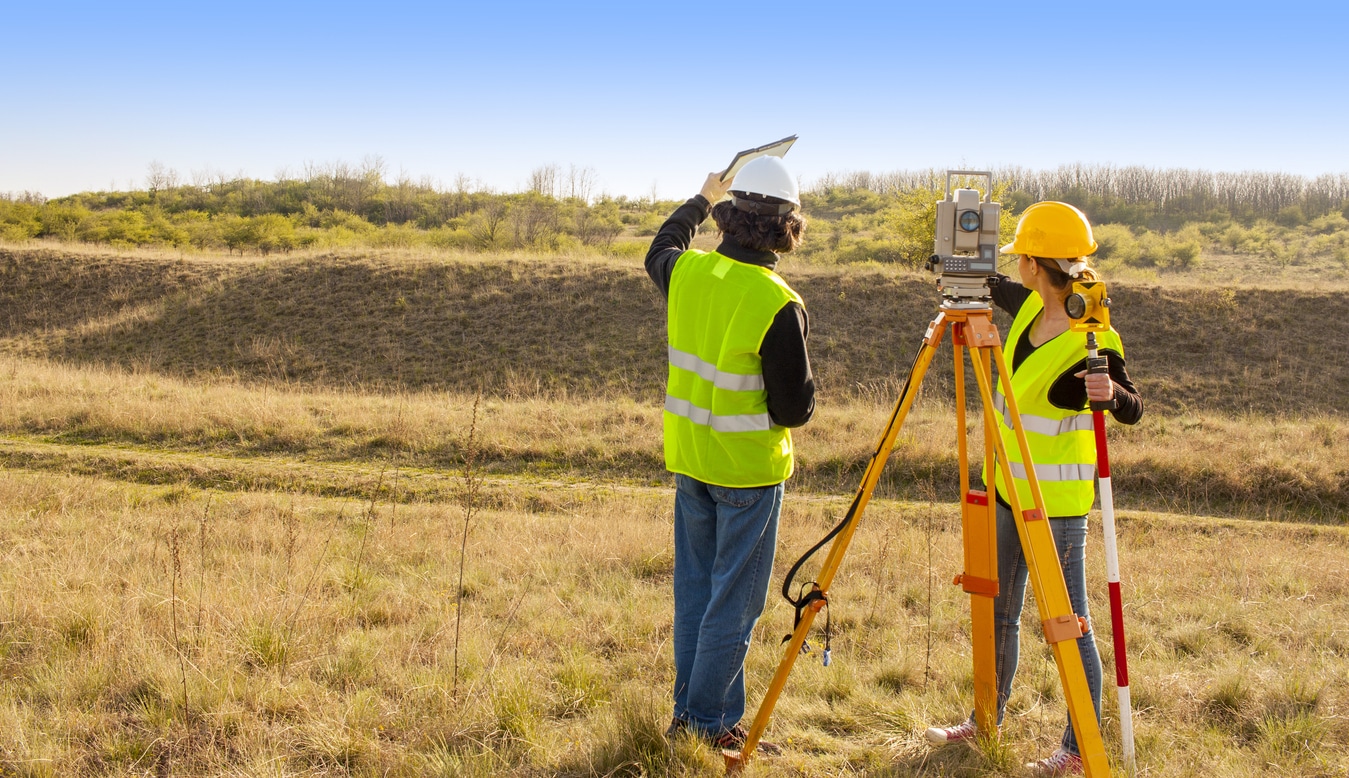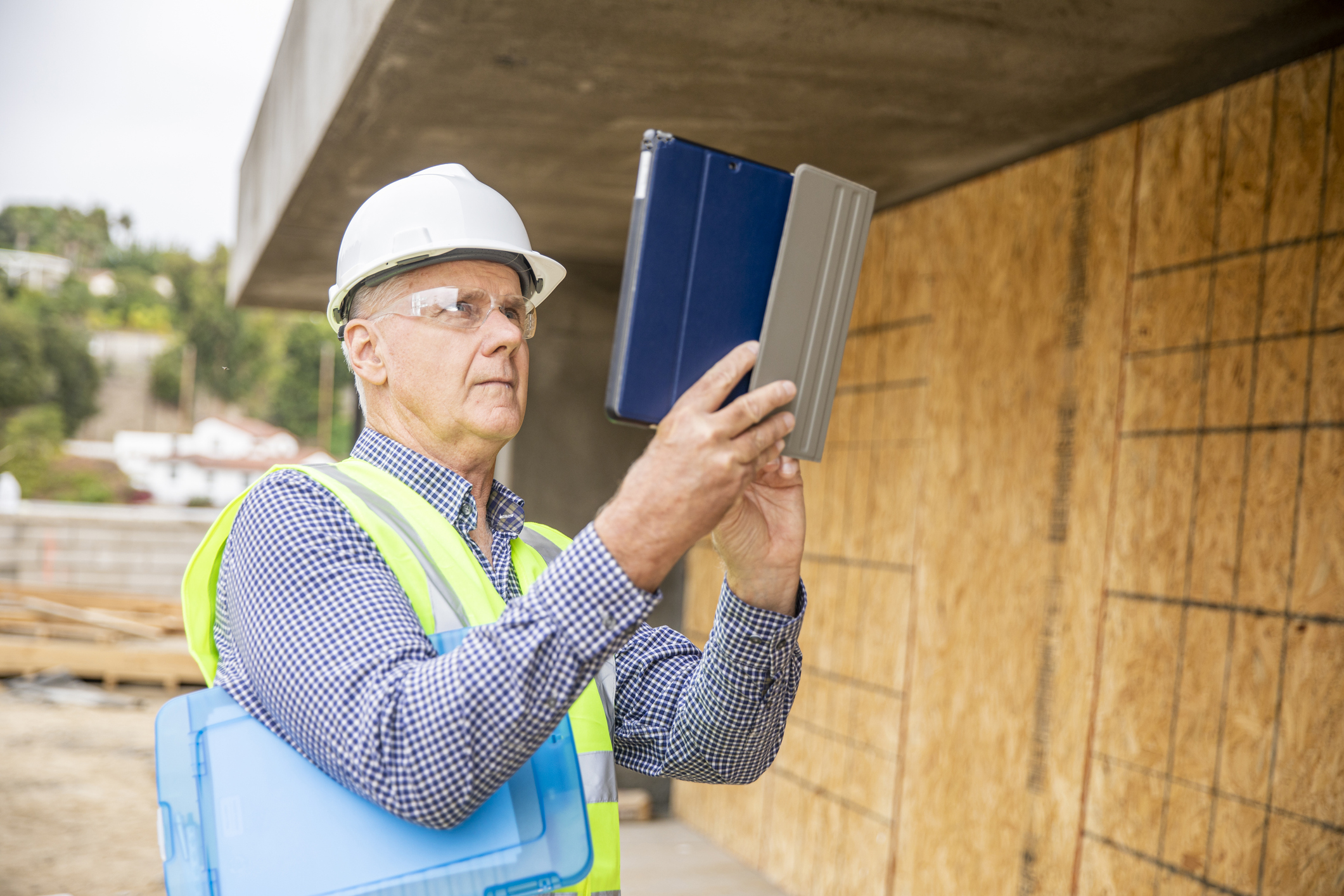This requirement will come into effect on 20 April 2020. SLED will still accept the current qualification CPP40707 Certificate IV in Security and Risk Management and SoA for CPPSEC5004A Prepare security risk management plan and CPPSEC5005A Implement security risk management plan until 28 September 2021 – this will allow 6 months transition from the teach-out date (noting ASQA has extended this due to the COVID19 situation).
Follow this link for further details.
Author: Artibus News
Surveying & Spatial Information Services: Have your say
A national project is underway to review the vocational education and training (VET) qualifications and associated units of competency in Surveying and Spatial Information Services.
We are requesting input from industry stakeholders and welcome your feedback on the qualifications and units of competency - do they meet industry requirements and accurately reflect job functions and work activities? Are there any gaps?
Complete our Surveying and Spatial Information Services Questionnaire to let us know your thoughts.
Visit the Surveying and Spatial Information Services Project Page for current information on the progress of the project.
Qualifications to be implemented together
The AISC communique for its February 25 meeting has been released. One Property IRC project (Building Design) and eight Construction IRC projects were reviewed.
We are pleased to announce that a large number of projects have been approved—albeit with conditions for some qualifications.
These projects involved consultation with a range of stakeholders–including employers, industry associations, workers, contractors, unions, training organisations, regulators, and more.
The IRCs would like to thank everyone who has participated. In particular, they’d like to express their appreciation to members of the technical advisory groups, who have given great amounts of time and energy to reviewing and improving training package components.
In the next few days Artibus will be providing advice on our strategies and time frames for addressing any further work required to finalise approvals.
Project Outcomes
In addition to any other conditions listed, the AISC has ruled that CPCCWHS1001 Prepare to work safely in the construction industry is to be removed as a core unit from all construction qualifications before they are endorsed.
Building Design
Submission:
Updated Graduate Diploma in Building Design.
New qualification: Advanced Diploma in Building Design.
Deletion of Graduate Certificate in Building Design.
Certificate IV in Building Design Drafting updated and renamed to Certificate IV in Residential Drafting.
AISC decision:
Approved
Submission:
Updated Diploma of Building Design
AISC decision:
Conditionally approved pending approval of one unit, CPCCBC4015 Prepare specifications for all construction works.
Bricklaying, Block Laying and Stonemasonry
Submission:
Updated Certificate III in Bricklaying and Block Laying
Updated Certificate III in Stonemasonry
AISC decision:
Conditionally approved (see conditions of approval above).
Also, safety requirements including wall size dimensions are to be changed in three core units.
Building and Construction
Approval of all qualifications in the building and construction project is conditional on changes to the unit CPCCBC4008 Supervise communication and administration processes for building and construction projects (removal of the requirement for onsite assessment).
Submission:
New Certificate IV in Building Project Support and Certificate IV in Building and Construction to replace the existing four building and construction Certificate IVs.
AISC decision:
Certicate IV in Building Project Support conditionally approved (pending changes to CPCCBC4008). Certificate IV in Building and Construction requires further work to support the two specialisations of builder and site manager.
Submission:
Updated Diploma of Building and Construction (Management)
Updated Diploma of Building and Construction (Building)
Updated Advanced Diploma of Building and Construction (Management)
AISC decision:
Conditionally approved (pending changes to CPCCBC4008).
Building Completions:
Five qualifications approved.
Carpentry and Joinery
Further work is required on the two proposed qualifications.
Construction Pathways
Three qualifications approved.
Demolition
Two qualifications approved.
High risk work
Four qualifications approved (with some conditions on the Certificate III in Construction Crane Operations). Deletion of two qualifications approved.
Painting and Decorating
One qualification approved.
Conditions of approval for the following qualifications
Approval of all the following qualifications (High Risk, Building Completions, Construction Pathways, Brick/Block/Stonemasonry, Carpentry and Joinery, Demolition, and Painting and Decorating) is conditional on:
- removal of CPCCWHS1001 Prepare to work safely in the construction industry as a core unit
- any core units updated in other qualifications being approved.
AISC directed that CPCCWHS1001 be noted in the qualification description as a requirement for general induction training in the construction industry.
High Risk Work
Submission:
Updated Certificate III in Construction Crane Operations
Updated Certificate III in Rigging,
Updated Certificate III in Steelfixing
Updated Certificate III in Scaffolding
AISC decision:
Conditionally approved (see conditions of approval above).
Also, any content removed from the units Licence to operate a tower crane and Licence to operate a self-erecting tower crane should be reinstated, and these two units should be reviewed by Safe Work Australia.
Submission:
Deletion of Certificate III in Post Tensioning
Deletion of Certificate III in Dogging
AISC decision:
Approved.
Building Completions
Submission:
Updated Certificate III in Roof Tiling
Updated Certificate III in Solid Plastering
Updated Certificate III in Wall and Ceiling Lining
Updated Certificate III in Wall and Floor Tiling
Updated Certificate III in Construction Waterproofing
AISC decision:
Conditionally approved (see conditions of approval above).
Demolition
Submission:
Updated Certificate III in Demolition
Updated Certificate IV in Demolition
AISC decision:
Conditionally approved (see conditions of approval above).
Painting and Decorating
Submission:
Updated Certificate III in Painting and Decorating
AISC decision:
Conditionally approved (see conditions of approval above).
Construction Pathways
Submission:
Updated Certificate I in Construction
Updated Certificate II in Construction
Updated Certificate II in Construction Pathways
AISC decision:
Conditionally approved (see conditions of approval above).
Carpentry and Joinery
Submission:
Updated Certificate III in Carpentry (replacing current Certificate III in Carpentry, Certificate III in Carpentry and Joinery and Certificate III in Formwork/Falsework)
Updated Certificate III in Joinery (replacing current Certificate III in Joinery and Certificate III in Joinery (Stairs))
AISC decision:
Neither qualification was approved.
Further consultation is required on the packaging rules of the Certificate II in Carpentry to ensure it meets employer needs and supports the viability of apprenticeships.
Built Environment Auditor
There are a raft of regulations requiring the inspection and assessment of the built environment during and after construction, covering areas such as the National Construction Code, energy efficiency, disability access, and public safety. The Property Services IRC has proposed a new Certificate IV qualification be developed to house the skills and knowledge required for these auditing and reporting functions. The initial focus proposed by the IRC is to transition the Access Consulting units of competency into this qualification. A project page with more details will be added to the website in the near future.
Plumbing and Fire Services
The plumbing and fire services project has completed its quality assurance phase. The final version is now undergoing a review by state and territory training authorities before submission to the AISC meeting in June.
The project has been a complex one, involving more than a dozen qualifications (now streamlined to eight) with different regulatory requirements in each state and territory. The IRC would like to thank the members of the technical advisory group and all the industry stakeholders that have participated in the project for providing their time, feedback and expertise over the last two years.
To keep up to date, please visit the project page.
Surveying and Spatial Information Services
The technical advisory group reviewing and updating surveying and spatial information qualifications has recommended some changes to the range of units and qualifications on offer and would like to hear what stakeholders think. Their proposal would remove redundant units and qualifications, creating a more robust framework to cover the full range of highly skilled work performed by surveyors and spatial information technicians.
You can obtain the draft qualifications and units on the project page. A webinar is scheduled for Friday 3 April 2020, 3.00 pm - 4.30 pm to provide an overview of the proposed changes. Register HERE.
We encourage you to provide feedback on the draft qualifications and units of competency using this questionnaire.
Integrated digital delivery
- design
- off-site fabrication of components
- construction
- ongoing facilities management and maintenance
Please note, the Construction IRC has a somewhat similar—but separate—project on BIM awareness in the construction industry. Although these projects are being developed separately, both IRCs are keen to ensure that units and skill sets from each training package complement (rather than duplicate) each other.
Cleaning qualifications: Do they need a tidy up?
Waste management qualifications done and dusted
Swimming pool and spa building nearing completion
Building surveying: call for feedback
- deletion of the graduate diploma
- limitations on building sizes for the advanced diploma—up to two storeys and 500 m2
- adding four units to the advanced diploma from the Certificate IV in Building and Construction
- inclusion of units on performance solutions, ethics, bushfire attack levels, thermal performance and energy efficiency












